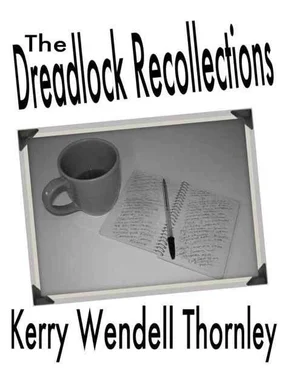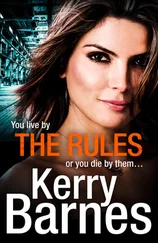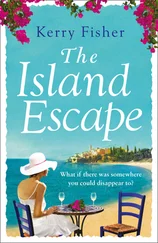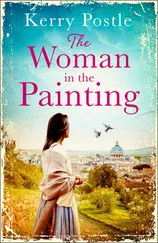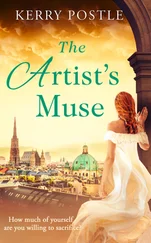"It's okay with me," I answered eagerly.
"I don't think jails should exist. Do you? I think society should find a more humane way of dealing with criminals."
"Yes. I think they should be confined comfortably and studied to find out what makes them criminals, so crime can be prevented. As Robert Ingersoll said, 'Men do what they must do.' Everything anyone does always seems to them like a good idea at the time. We should find out why criminals are attracted to antisocial behavior, instead of punishing them."
"Exactly. And don't you think it would be better if our technology were oriented more toward the exploration of outer space than to the production of war materials?"
"Yes," I said, not certain I was telling the truth. I hadn't thought much about that one before.
"Now I know you agree that both forced segregation and forced integration are wrong. What if people were allowed to form their own communities? What if white racists could live in segregated communities while others were free to form racially mixed communities? Black separatists could also form their own communities. That way we Germans could maintain our racial purity, you Beatniks could intermarry, Malcolm X and his friends could go off and live by themselves, and everybody would be happy."
"That sounds like a good idea," I said. Silently, though, I wondered if he simply wanted to divide us into neat geographically distributed categories in order to make the job of exterminating the rest of us easier for him and his Germans.
I agreed wholeheartedly though to the idea of free trade among nations with no tariffs restricting international commerce. "Yes, that's one good thing about our President," one of us said. "The 'Kennedy Rounds' to negotiate the gradual reduction of tariffs."
"And I think we should return to a limited, Constitutional government."
"Yes," I agreed. "Government should confine itself to its proper functions: preventing force and fraud. There should be no bureaucracies except the police and the military. And the military should only be used to defend our shorelines and to protect American investments abroad."
"Kerry, I don't think we should defend the foreign holdings of Americans. I think investors should place their funds at the mercy of foreign governments at their own risk. Otherwise there are too many excuses to get involved in foreign wars."
We agreed to disagree on that one.
"And I think there ought to be sanctity of the home. I think a man's home is his castle and that's the way it should be."
For a brief, mad split second I wondered why this Nazi wanted privacy like that. What was he planning to do in his castle, Bavarian Gothic as it was sure to be?
Then I thought about the quartering of British troops in Colonial American homes and the Bill of Rights and the principles of Objectivist individualism, and I felt ashamed of allowing sinister possibilities to distract my mind from such a refreshingly rational discussion with Brother-in-law. For if these were his true politics, how could I take seriously his stuff about being a Nazi?
"Kerry, I think Robert Kennedy's Justice Department was wrong in jailing and fining those business executives for Anti-Trust Law violations. Don't you?"
"Yes. That's what Ayn Rand says in one of the Objectivist newsletters. Of course, the Marxists are wrong, and so are the Kennedys. Punishing the great producers of the world is not the answer to insuring adequate production."
Mixing government and business, Rand says, is a form of fascist-socialism. Whether the businessmen or the government bureaucrats wind up ruling the economy, either way you've got one group of men running everything. I considered Roger Blough and those others to be great, persecuted heroes, and it appeared to me that the Kennedy brothers double-crossed them. Besides that, I found the Anti-Trust Laws to be vague and irrational.
At that time, I believed that only unregulated, unrestricted production would ever be able to feed everyone in the world, like the starving people in the Intramuros sector of Manila, the City of Walls, as they call that bombed-out slum. That was why I became a Marxist, temporarily, before I read Atlas Shrugged , because of the sight of starving people. It's one thing to read or hear about something like that and quite another to actually witness it.
"Yes," he said. "And I think it would also help if we returned to a predominantly agricultural economy."
"Certainly. Between the United States and Canada, there is enough fertile land and right weather conditions that both countries together could feed everyone. We could be the breadbasket of the world. Instead, our criminal bureaucrats pay farmers not to grow things."
"And I think unions ought to be free also. If workers want to form a radical labor union, I think that is their right."
"Yes, I can agree to that. It's in keeping with the idea of separation of the government and the economy."
"But I don't believe in the general strike."
"What is the general strike?"
"That's where the workers take over a factory and run it themselves."
"Yeah, I don't like that idea either. Great organizational skill, perhaps genius, is required to administer a productive corporation. Talent like that deserves whatever rewards it cares to demand. If workers tried to run things, they'd do it inefficiently. One of the problems is most people think 'profit' is a dirty word. Kennedy is always calling on people to make sacrifices to the national interest. According to my philosophy, that's immoral."
"Ah yes," he said, looking at me steadily. "What if we could give the word 'sacrifice' such a bad name that no one would ever again listen to talk like that?"
I wondered what he had in mind, but I think I was afraid to ask. "That sounds okay, I guess."
"What do you think of local police? Don't you think it would be a good idea to recruit local police to a revolutionary movement? They would be in favor of local control of government institutions, of keeping political power closer to home."
"Yes, that might work. One of our worst problems in this country is the centralization of power in the hands of the Federal Government."
Also, he mentioned various civil organizations. He said that they were involved in politics much more than the public suspected, and that in the future they were going to become yet more involved. Among them, I think he included both the Elks and Eagles.
"You know, Kerry, before his death John Dillinger wrote a note insisting that he had never harmed anyone. Why do you suppose he felt that way?"
"Who the hell knows? How could I answer a question like that?"
"I think central banking ought to be abolished. Don't you agree?"
"What is central banking?"
"That's where bankers have got the power to inflate or deflate the value of the currency in order to manipulate the economy."
"Debasing the coinage. Yeah, Jessica says they were doing that at the fall of the Roman Empire. If that's what you mean, I agree. That's a form of fraud. I don't think we should let them debase the coinage either."
"Kerry, I think the best person to solve a complicated political assassination would be an anarchist, because he wouldn't be partial to any of the many political factions involved."
"Yes, but anarchy isn't practical."
A smug smile brightened his expression. "Don't be hasty in passing judgment on the writings of the anarchists. They had some good ideas, no matter how you feel about the need for government. For example, Bakunin and some of the other anarchists said some very perceptive things about money and banking." His evident amusement puzzled me at the time.
"There's a guy who hangs out at the Ryder Coffee House on Rampart Street, Ernest or Irv or something like that, who says he's an anarchist. I asked him about anarchy. I said, 'Explain to me how the hell anarchy could be made to work.' You know what his answer was? 'We live in a very complex society.' That's all the dumb sonofabitch would say. Over and over again, to each of my questions: 'We live in a very complex society.' That's all I could get out of him!"
Читать дальше
